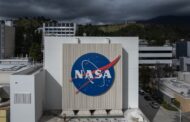The aviation industry faces one of the toughest challenges in global decarbonization.
Unlike other sectors where electrification is feasible, airlines require a high energy density fuel to maintain long-haul flights and operational efficiency.
With aviation responsible for around 2-3% of global greenhouse gas emissions, the urgency to develop alternative propulsion systems is critical.
Airbus has reaffirmed its commitment to hydrogen-powered aviation, pushing forward with its ZEROe project.
Advertisement
Advertisement
The company now expects to debut a commercially viable hydrogen aircraft by the late 2030s, marking a shift from its previous 2035 target.
Fuel cell technology for ZEROe project
Airbus has spent years evaluating different hydrogen propulsion methods, including turbofan, turboprop, and blended-wing body designs using hydrogen combustion.
After extensive research and testing, the company has selected fuel cell technology as the best option.
Unlike combustion engines, hydrogen fuel cells generate electricity through a chemical reaction between hydrogen and oxygen, producing only water as a byproduct.
This approach aligns with Airbus’ goal of achieving true zero-emission aviation.
Advertisement
Advertisement
The new aircraft design features four 2-megawatt electric propulsion engines, each powered by a dedicated fuel cell system.
ZEROe hydrogen-powered four pod aircraft. Airbus
These engines will receive hydrogen from two liquid hydrogen tanks, stored cryogenically at extremely low temperatures.
Airbus believes this setup will provide the most efficient and scalable solution for future hydrogen-powered commercial aviation.
Infrastructure and regulatory hurdles
While Airbus has made significant strides in hydrogen propulsion technology, the company acknowledges that challenges extend beyond aircraft development.
A robust hydrogen ecosystem is necessary to support hydrogen-powered aviation, including refueling infrastructure, transportation, and regulatory frameworks.
Advertisement
Advertisement
Airbus’ Hydrogen Hubs at Airports program is working with over 200 airports, airlines, and energy providers to develop the necessary supply chain.
Regulatory approval remains another major hurdle. Hydrogen-powered aircraft require entirely new certification standards, similar to the process eVTOLs (electric vertical take-off and landing vehicles) are currently undergoing.
Airbus is working closely with industry regulators to establish the necessary guidelines, ensuring the safe integration of hydrogen-powered planes into commercial service.
The company remains confident that by the late 2030s, these regulatory and infrastructure challenges will be sufficiently addressed.
Industry collaboration to push hydrogen dream
Airbus has laid out a clear roadmap for advancing hydrogen aviation technology.
Advertisement
Advertisement
The company successfully tested a 1.2-megawatt hydrogen propulsion system and later completed end-to-end testing of a fully integrated fuel cell stack, electric motors, gearboxes, and inverters.
The next major milestone involves ground testing of the full propulsion system alongside hydrogen distribution systems, scheduled for 2027.
Collaboration with industry partners remains crucial to Airbus’ vision.
The company continues to engage with energy suppliers, airport authorities, and aircraft operators to establish the necessary hydrogen supply chain.
These partnerships will play a key role in accelerating the transition toward hydrogen-powered aviation.
Advertisement
Advertisement
Airbus remains at the forefront of sustainable aviation, and its decision to prioritize hydrogen fuel cells represents a significant step forward.
While the path to commercialization is challenging, the company’s continued investment in research, infrastructure, and regulatory efforts signals a determined push toward a zero-emission future.
By the late 2030s, hydrogen-powered commercial flights could become a reality, reshaping the aviation industry for decades to come.








